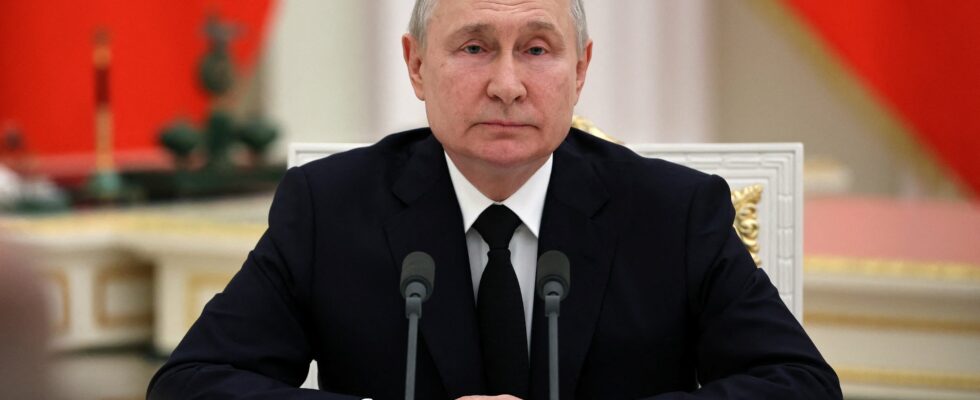In the midst of a period of Russian-American talks on the war in Ukraine, these are conclusions to take into account. American intelligence published its annual summary report on the main state and non-state threats on the United States on Tuesday 25 March. This reported information is presented in the form of different chapters. The risks linked to Iran, North Korea or China are thus detailed during the 31 pages of this “annual threat evaluation”, Available publicly online. Beijing is also considered the main military threat by secret services.
An entire part of this text is therefore also devoted to Russia. American intelligence describes point by point the forces of Moscow, which he still considers as an international opponent on the international level. “Regardless of the way in which the war in Ukraine ends and the moment when it ends, the current geopolitical, economic, military and political tendencies of Russia show its resilience and the sustainable potential threat which it represents for the power, the presence and the world role of the United States”, notes the report.
An alternative to Putin? “Less likely today”
On the political level, American intelligence, which is based on all of the work carried out by national security agencies (CIA, NSA, FBI …), underlines the weight of the personality of Vladimir Putin in Russian society. The Russian president “appears to be resolved and prepared” to impose his vision of the world, even if it means “paying a very important price” to achieve this. “Most Russians continue to passively accept war, and the emergence of an alternative to Putin appears less likely than any other time in the last twenty-five years,” points out the report.
To support its war in Ukraine, Russia has continued in recent months to invest massively in its industrial defense base – despite the economic sanctions imposed by Western countries on its economy. According to the same source, it manages to resist the context of the war and the inflation that affects the country. “Russia’s relationship with China has helped Moscow to defeat the sanctions,” said American intelligence. The “reinforced” links between the Kremlin and Beijing are part of a series of geostrategic “partnerships”, allowing the Kremlin to find solutions so as not to remain isolated on the international scene.
Despite certain weaknesses, in particular concerning a lack of ground troops and a demography at half mast, Moscow always seems able to develop many tactics to have significant military capacities in the long term. “Russia will continue to be able to deploy anti-American diplomacy, coercive energy strategies, disinformation, espionage, influence, military intimidation, cyber attacks …”, exhibit the secret services.
The Russian Federation “has the most important and most diverse stock of nuclear weapons,” it is also recalled. Since the start of the war in Ukraine, Vladimir Putin has continued to wave the threat of the use of the atomic bomb. Search for artificial intelligence tools, creation of new chemical weapons, spatial military development … “Russia has proven that it was adaptable and resilient” to continue its military strengthening on all fronts, underlines this “annual evaluation of threats”.
“A war by proxy with the West” in Ukraine
The perspective of the end of the Ukrainian conflict is the subject of a full -fledged analysis in this note. In addition to the description of the support of Iran and North Korea to Russian troops, intelligence mentions the recent discussions between Moscow and Washington to try to put an end to war-or at least, at first, to find a cease-fire agreement. An approach for which Vladimir Putin and his counterpart Volodymyr Zelensky both showed a certain “will”, according to this analysis.
“Putin is probably aware of the fact that a prolonged conflict may slow down the Russian economy and cause unwanted climbing with the West; and Zelensky surely understands that his position is weakening, that the future of Western aid is uncertain and that a cease-fire could ultimately become a necessary appeal,” deciphers synthesis. However, the same note enjoins the Americans not to be lulled in illusions as to the intentions of Russia, which leads “a war by proxy with the West” in Ukraine. “The two leaders still believe that the risk of a long war are less compared to those of a bad agreement.”
